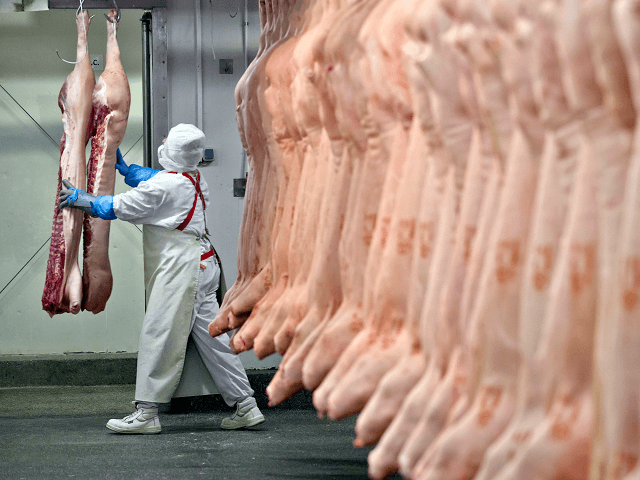Whilst the British media focused on the potential future of food imports from the U.S. after Brexit, a real food scandal has been developing in Europe in which Belgian and Dutch authorities failed to inform their neighbours about millions of pesticide-infected eggs being exported through the continent.
After reports of the possibility that an early trade deal agreement with the U.S. could allow the importation of chlorine-washed chicken, the media rushed to herald the death of food safety standards as another Brexit bad news story – and yet more evidence that the cost of exiting Europe is too high for Brits to bear.
“Chicken in the Coalmine”, blared a headline in HuffPost UK, while the Mirror screamed: “First Chlorine Chicken, Now HORMONE BEEF Could Be on the Menu after Brexit.”
An article in the Irish Times sneered over ‘Brexit-Flavoured Chlorination Chicken’, and in the Metro, Oliver Wheaton moaned: “We Might Start Getting Chlorinated Chicken Thanks to (You Guessed It) Brexit,” claiming that “the EU bans this practice on health grounds”.
In fact, the European Food Safety Agency has passed chlorinated-washed chicken for safe consumption.
But who will protect us from these health risks outside the EU!? 😎 😎 😎 https://t.co/AdsgO5Dd6N
— Breitbart London (@BreitbartLondon) August 6, 2017
Yet the Food Standards Agency’s announcement on Monday that contaminated eggs imported from Europe have been distributed in Britain failed to elicit much concern from Remain-supporting media which implied only EU regulations can stop toxic food entering the UK’s supply chain.
Millions of Dutch eggs were declared unfit for consumption as they were found to contained large amounts of fipronil — an insecticide the World Health Organization (WHO) warns can have dangerous effects on people’s kidney, liver, and thyroid gland function.
Belgium’s food safety agency admitted it has been aware of a potential problem with fipronil in the poultry sector since June, but kept the information secret, Euractiv reported.
Millions of laying hens in the Netherlands may now have to be killed.
In May, a top doctor revealed that a potentially deadly disease that causes 60,000 people in Britain to fall ill each year could be traced to Europe.
Dr. Harry Dalton said the strain of Hepatitis E (HEV) — which causes a flu-like illness and can cause death in people with weakened immune systems — can be traced back to imported European pork products in 80 per cent of cases.
'Brexit virus': an EU-plot to sabotage the great British breakfast https://t.co/0jxUwnPXcl
— The Guardian (@guardian) May 22, 2017
The doctor, a gastroenterologist at Exeter University, told a conference on neurological infectious diseases that HEV had become a major threat.
“I call it the Brexit virus. It attacks the liver and nerves, with a peak in May,” he said.
“It is particularly dangerous for people with suppressed immune systems such as those who have had organ transplants and possibly cancer. The virus seems to come from Europe,” reported The Times.
By contrast, the journal of the British pig industry this week noted the high levels of animal welfare for pork production in the United Kingdom compared to the European Union and other major pork-rearing nations worldwide.
These recent food scare events, which have received very little attention in the mainstream media, may recall the 2013 horse meat scandal, in which the “complexity of the food-supply chain” in Europe where food products were able to cross borders around the continent without checks allowed unauthorised ingredients to enter the food chain.
Reuters reported at the time that Britain’s Food Standards Agency had been “bullied” by the European Commission into changing food regulations which encouraged British retailers to buy meat from Europe rather than domestically, which led to minced horse meat from Eastern Europe that had been fraudulently labelled as beef to be imported into the United Kingdom.

COMMENTS
Please let us know if you're having issues with commenting.